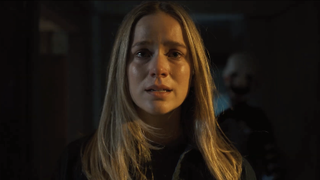Box Office
Latest about Box Office

First Box Office Weekend Of 2026 Delivers Milestones For Avatar: Fire And Ash And The Housemaid
By Eric Eisenberg published
A noteworthy start for the new year.

It's Christmas On Pandora As Avatar: Fire And Ash Has A Massive Second Weekend At The Box Office
By Eric Eisenberg published
Just doing what box office juggernauts do.

Avatar: Fire And Ash Rules The Weekend Box Office (Duh), But Questions Linger About The Future
By Eric Eisenberg published
Will Avatar 3 be as big as its predecessors?

Five Nights At Freddy's 2 Bombs Hard In Its Second Box Office Weekend As Zootopia 2 Returns To The Top Spot
By Eric Eisenberg published
Oooof.

Five Nights At Freddy's 2 Survives Drubbing From Critics And Easily Wins The Weekend Box Office... But It's Not All Good News
By Eric Eisenberg published
Results are a touch mixed for the new video game adaptation.

Zootopia 2 Surpasses $550 Million Globally, Running Wild At The Box Office Over Thanksgiving Weekend
By Heidi Venable published
Nick Wilde and Judy Hopps surpass Glinda and Elphaba.

Rejoicify! Wicked: For Good Smashes Records At The Weekend Box Office, But It’s Bad News For The Running Man
By Heidi Venable published
Glinda and Elphaba’s return for Act II overshadows other new releases.

Now You See Me: Now You Don’t Conjures A Win At The Weekend Box Office While The Running Man Lags Behind
By Eric Eisenberg published
Not the box office weekend many were hoping for.
CINEMABLEND NEWSLETTER
Your Daily Blend of Entertainment News
LATEST ARTICLES


